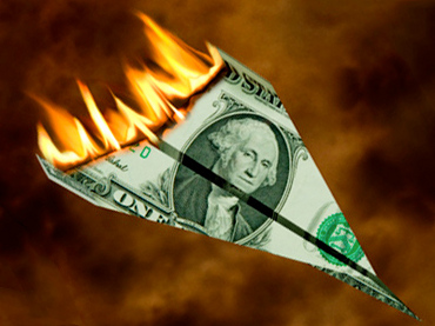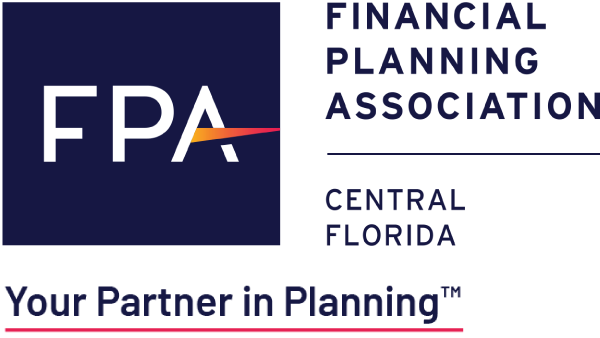
A Financial Realist’s Guide to Preparing for the Next Economic Downturn

Amid one of the longest economic expansions in recent American history, FPA member and CERTIFIED FINANCIAL PLANNER™ professional Scott A. Bishop can’t help but be pragmatic. While Bishop and his clients at STA Wealth Management in Houston, Texas, are enjoying the fruits of the current expansion, including steadily climbing equity markets and a robust job market, he’s been around long enough to sense the inevitability of the next economic downturn, which is why he recently penned a new article for his firm’s blog. It’s called “The Recession Survival Guide,” and it speaks to the growing possibility that sometime in the not-too-distant future — it could be months, it could be years — the current cycle will give way to the next recession.
The signs of an economic slowdown are too compelling to ignore, he says, noting in particular the historically unprecedented length of the current expansion (the National Bureau of Economic Research identifies it as the longest on record, beginning at the bottom of the Great Recession, in June 2009). That, coupled with other historical recession harbingers like an inversion of the treasury bond yield curve, weakening economies abroad and reduced investment by corporations, suggests it’s time for people to examine how their money and their assets are positioned, and take any necessary steps to ensure they will be protected when the next economic downturn arrives.
“Now is the time to take precautions,” he says.
In this case, taking precautions starts with having a formal financial plan in place that accounts for the possibility (probability?) of a weakening stock market and economy, and the negative impact they’re likely to have on a person’s assets, retirement planning, job security and the like. Besides providing a script for how a person’s assets will be handled during a market downturn, a financial plan serves an important role as a compass during challenging economic times, Bishop says. “You want to have a plan in place now for how you’ll manage your assets [in the event of a downturn], so when it does happen, you aren’t reacting, you’re following that plan.”
Having a plan in place, he adds, “will allow you to make optimal decisions to help keep you and your family on track to your longer-term financial goals and objectives.”
A sizable cash reserve
can provide an important protective buffer against the fallout of an economic
downturn. “In case of an emergency or job loss, this will allow you to ‘be
your own bank’ rather than going into credit card debt,’” explains FPA member Aaron
Clarke, CFP®, of Halpern Financial in Ashburn, Va. The amount to keep in that
reserve depends largely on a person’s stage in life and their wherewithal to build
a cash reserve while still meeting their other financial obligations and goals.
FPA member Marc B. Schindler, CFP® of Pivot Point Advisors in Bellaire, Texas, recommends holding up to three years of monthly expenses in cash, to keep from having to liquidate investments when their value is down in order to meet income needs. “The average bear market is 13 months,” he says. “By holding a larger amount of cash, one can stomach any downturn in the stock market and not sell at the bottom or panic.”
“Since selling out of their holdings at the bottom of the market is the worst possible thing they can do, we make sure we have enough liquidity for near-term expenditures to prevent from having to sell out of their positions during a correction,” echoes FPA member Henry Luong Hoang, CFP®, founder of Bright Wealth Advisors in Newport Beach, CA.
That’s particularly important for people who are close to retiring or already
there, adds FPA
member Daniel J. Flanagan, CFP®,
of Canby Financial Advisors in Framingham, Mass. “I typically recommend that retirees keep 12 to
24 months of cash needs on hand. That way, if the markets are down, they are
not liquidating their portfolio for short-term cash needs.”
Reduce your debt burden. When household budgets tighten, paying large amounts of interest on credit card balances, for example, can add additional financial strain. So before the downturn hits, make a concerted effort to pay down debt. Having lower credit card debt heading into a recession also provides a safety net and financial flexibility, in case a person needs to rely more on a credit card for the short term due to unexpected job loss, etc.
Be more
budget-conscious. Regardless of economic conditions, Clarke suggests that people put
in place a household spending plan or budget. During an economic downturn, he
recommends revisiting that budget or plan every six months “so that when the
inevitable slowdown occurs, you will know what areas you can trim back, to help
you spend less and save more.”
Be ready to pounce on bargain investing
opportunities. Softer stock prices provide opportunities to “buy low” on
individual stocks, mutual funds and other equity-based investments. Capitalizing
on those opportunities could mean purchasing investments for a taxable
portfolio, or increasing equity-based investments inside retirement accounts,
college savings plans and the like.
Maintain perspective. “Although some last longer than others, market corrections are always temporary and a part of the market cycle,” Hoang points out. “By understanding that market corrections create great investment opportunities for investors, we can navigate a market correction appropriately to work to our advantage.” Rather than trying to time the market, a practice that carries inherent risk, seek out solid fundamental investment opportunities.
Establish an automated savings habit.
“Remove the temptation to spend money you should be saving for a rainy day,”
suggests Clarke. “Set up auto transfers so that you have no choice but to spend
less by deferring your income to savings before you even get a chance to spend
it.” Keep that money in a high-interest savings account (check a site like www.bankrate.com to compare
rates).
Run through the what-ifs. “I play out scenarios with [my clients] and ask them to tell me what we are going to do when the correction comes,” says Hoang. “I quiz them on the mistakes that we will be sure to avoid when the time comes. I remind them that practicing what they know will be challenging when it seems everyone is in a panic, and I remind them that the investors who can remain disciplined throughout a correction are the ones who come out on top.”
As part of that preparatory process, Bishop strongly recommends that people work with a financial professional to stress-test their investment portfolio to see how it would perform in various market scenarios, and to ensure it’s appropriately diversified to provide an adequate level of downside protection. “You’re looking for weak links in your portfolio. Maybe [the stress test] tells you you’re too heavily invested in one company or one sector.”
A stress test, he explains, can help to determine whether a person should reallocate their assets so they’re less exposed to risk, such as by shifting away from a high-growth stance, toward a more value-based stance.

